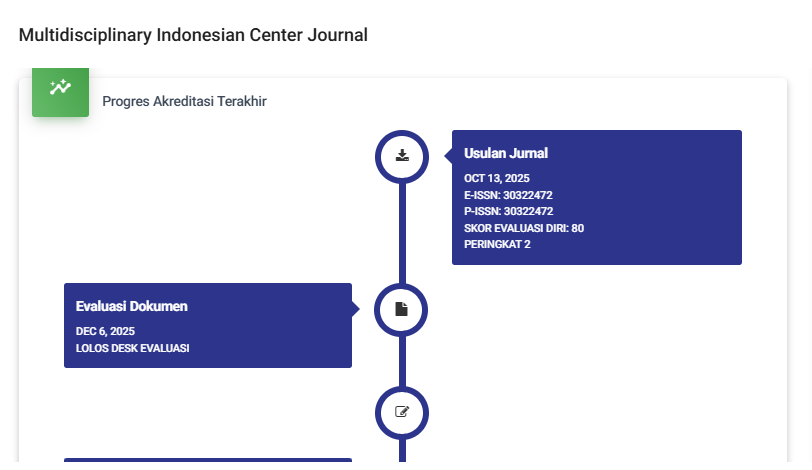GENDER EQUALITY IN THE QUR'AN: IMPLICATIONS FOR SOCIAL JUSTICE EDUCATION
DOI:
https://doi.org/10.62567/micjo.v2i3.827Keywords:
Gender, Education, IslamAbstract
One of the serious considerations in Islam pertains to the position of men and women. Islam highly values the worth of women. Gender equality is an essential topic to ensure that individuals, regardless of their gender, have equal opportunities, rights, and responsibilities in all aspects of life, while eliminating discrimination, violence, and harassment against women. Therefore, further discourse is necessary to rectify misconceptions. This research aims to explore the positions of both genders. It emphasizes that men and women share the same human status, having been created from the same substance, as ordained by God. The study employs qualitative research, specifically a literature review using relevant journals, books, and articles related to this topic.
Downloads
References
Al-Mahali, Jalaluddin. As-Syuyuti, Jalaluddin (2018) “Tafsir Jalalain”, Jakarta, Darul Kutub al-Islamiyah.
Hawkesworth, Mary E. (2006). Globalization and Feminist Activism. Rowman & Littlefield. hlm. 25–27.
Herlina, Nina. Nurjannah, Anisa (2017) “Forming Fetal Brain Intelligence During Pregnancy” Volume X No. 2 July 2017. Journal Sehat Husada.
Imaduddin Abu Fida' Isma'il bin Amr bin Katsir, Tafsir Ibnu Katsir, Beirut: Darul Kutub Islamiyah, 2020
Nuonline, Surat An-Nisa, https://quran.nu.or.id/an-nisa%27/34
Puastuti, Dwi-Ponidi, Ponidi-Lubis, Farhan Mubarok, (2023) “Socialization Learning from Covid-19: The Importance of Education for Women, Especially PKH Mothers in Bumi Ratu Village” Vol. 2 No. 1 DOI: http://dx.doi.org/10.30829/pema.v2i1.2463
Rokhmansyah, Alfian (2016) “Introduction to Gender and Feminism, Initial Understanding of Feminist Literary Criticism”, Yogyakarta: Garudhawaca.
Sani, R. A. (2022). Educational Research Methodology. Jakarta: Kencana.
Shihab, M. Quraish, (2009) Tafsir Al-Mishbah, Tangerang: Lentera Hati
Shihab, M. Quraish, (2018) Islam as I Understand it - Diversity is a Blessing, Tangerang: Lentera Hati.
Shihab, M. Quraish, (2018) Misunderstood Islam - Dispelling Prejudices, Erasing Misconceptions, Tangerang: Lentera Hati.
Sugiyono. (2018). Quantitative, Qualitative, and R&D Research Methods. Bandung: Alfabeta. Hal. 291
Suryadi, A, & Idris, E, Gender Equality in Education, Bandung: PT. Ganesindo, in the Journal of Gender Inequality in Education, 2004.
Thompson, E. P. (1991), "Sale of Wives", Customs in Common, The New Press, hlm. 404-466
Umar, Nasaruddin. Gender Bias Strengthened by Local Culture, 25 April, 2004, hal. 4.
Umar, Nasaruddin. (1999) Argument for Gender Equality from the Perspective of the Quran, Jakarta: Paramadina, 1999, hal. 33-34.
Law of the Republic of Indonesia, No. 20 of 2003, National Education System
Van Bemmelen S, (1995) Gender and Development, Jakarta: Yayasan Obor Indonesia, in the Journal of Gender Inequality in Education, 175-226.
Zed, M. (2014). Library Research Method. Jakarta: Yayasan Pustaka Obor Indonesia. Hal.
Downloads
Published
How to Cite
Issue
Section
License
Copyright (c) 2025 Ahmad Syarifudin, Romlah Abubakar Askar

This work is licensed under a Creative Commons Attribution-ShareAlike 4.0 International License.



























